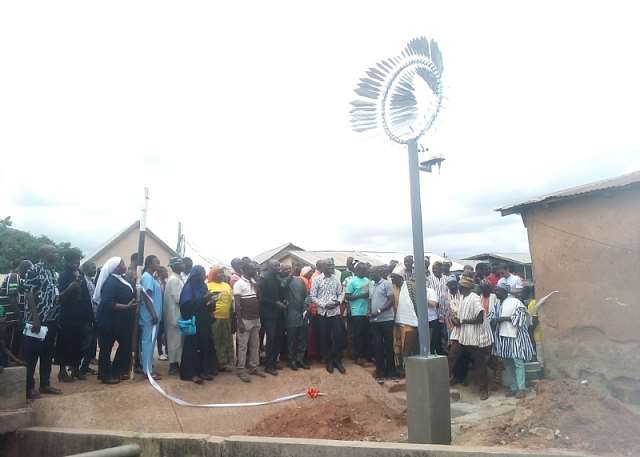By Samuel SAM
A new climate change adaptation project aimed at enhancing local resilience to flooding and improving community safety and health has been unveilled at Nalung, a flood-prone community in the Tamale metropolis of Northern Region.
The ‘Community Flood Risk and Adaptation in Tamale’ project – under the larger ‘Enabling Flood Adaptation’ initiative by Imperial College London – is funded by the British government. It is part of a broader project called ‘Pathways to Equitable Healthy Cities’ and funded by the Wellcome Trust, UK. The focus is on enhancing resilience to climate-induced flooding and providing forecasts and flood alerts to residents.
The project was inaugurated during a durbar to celebrate the co-production of methodologies for delivering city-level flood resilience and reducing health inequalities in sub-Saharan Africa.
The research – conducted in collaboration with Ben Howard, Cynthia Azochiman Awuni, Abeer Arif, Frans Berkhout, Wouter Buytaert and Samuel Agyei-Mensah – was partnered by the National Disaster Management Organisation (NADMO), University of Ghana, Tamale Technical University (TaTU) and University for Development Studies (UDS).
The aim is to develop strategies that communities can implement to mitigate the impacts of severe flooding events, particularly in vulnerable regions that urgently need climate adaptation measures.
As part of the project, a tree-planting exercise was conducted in the beneficiary communities to encourage tree-growth for mitigating climate change. The team also provided wheelbarrows, Wellington boots, cups and other working gear for NADMO to facilitate their activities. The communities involved include Kalariga, Sawaba, Jakarayili, Nalung, Koblimago and Tamale Metro, with a focus on ensuring equitable access to potable drinking water.
At the inaugural ceremony, chiefs and beneficiaries applauded the researchers for their efforts in addressing flood issues and improving access to potable drinking water.
Mr. Abdellah Mohammed, Tamale Metro Annex Zonal Coordinator-NADMO, noted that the organisation has been raising awareness about community indiscipline that leads to flooding and the need to create proper drainage systems to prevent crises.
Dr. Ben Howard, a researcher in the Department of Civil and Environmental Engineering at Imperial College London, explained that prior to identifying the communities’ pressing challenges, a two-day stakeholder meeting was held – during which participants selected flooding as their priority challenge. He also commended the researchers for installing instruments to help monitor weather conditions in the respective communities.
Madam Cynthia Azochiman Awuni, a team member and PhD student from TaTU, noted that research conducted by the team revealed that flooding in these areas has been adversely affecting economic activities, lives, properties and the health and well-being of residents.
She pointed out that flooding in some parts of the metropolis has become more frequent and intense due to population growth and urbanisation, which has negatively impacted residents’ health and well-being. The construction of buildings on waterways has also contributed to flooding in these communities.
She emphasised that the Nalung project serves as a model for how climate adaptation can be effectively implemented. The weather station installed as part of the project is linked to the internet and can be accessed via the flood adaptation website floodadaptation.tamale.com, requiring no special management.










